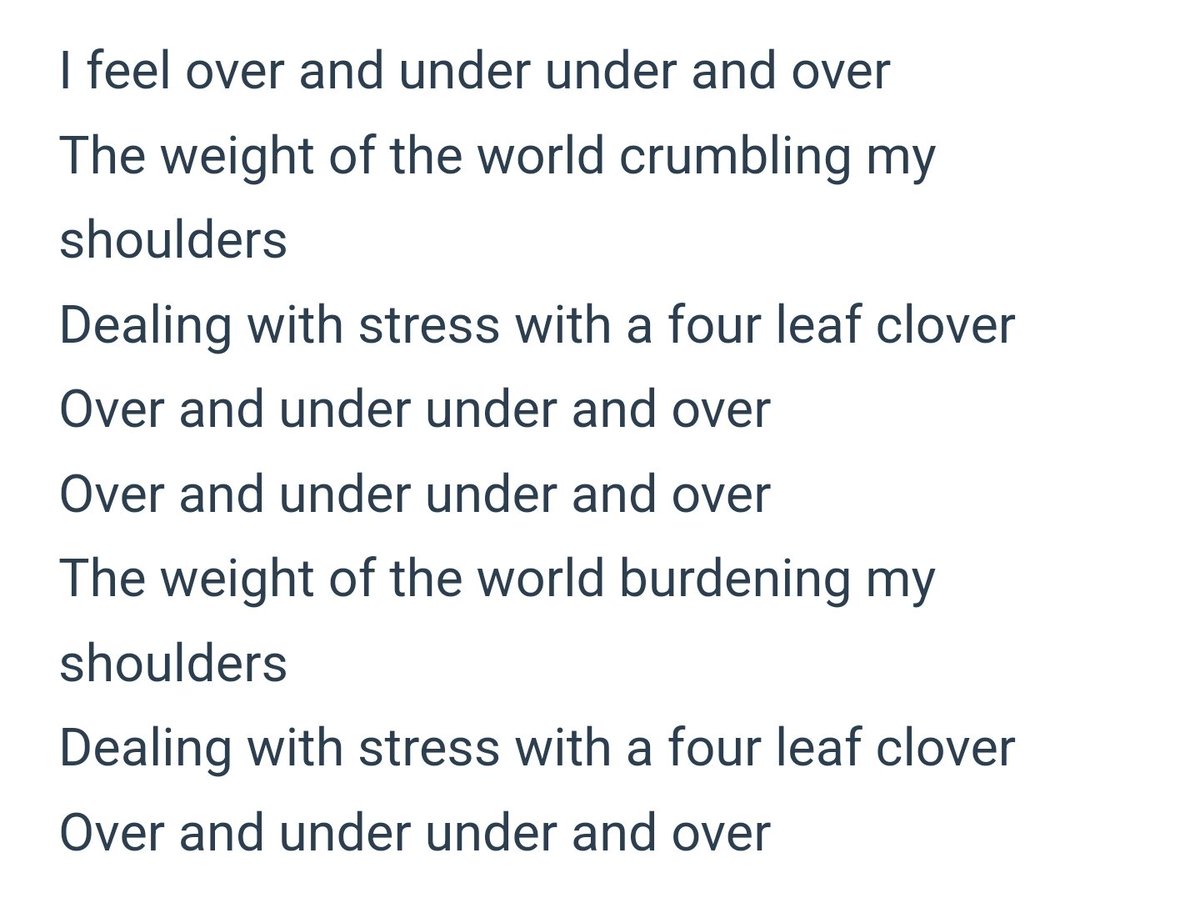
As part of #BlackHistoryMonth, we take a lyrical journey from Western Sudan to Naija to reclaim & celebrate our history with #Sankofa by M.anifest.
The breakdown
Sankofa
————
Intro
Uhuh, go back…
Go back and reclaim it…
———
The breakdown
Sankofa
————
Intro
Uhuh, go back…
Go back and reclaim it…
———
https://twitter.com/Tokersi/status/1629838544523935744?t=ncKrLxWmyqceYCZ9lSli2g&s=19
The intro is just an interpretation of the title—Sankofa; or more properly "San kɔ fa"—Go back & take. It's from the proverb, "Sɛ wo werɛ fi na wo san kɔ fa a, yɛnkyi"—It's not a taboo or an abomination to go back for something you've forgotten.
Whenever we realise we've made a bad judgement call, we should reverse the process & make the right one, if it's possible. "It encourages learning from the past to inform the future, reaching back to move forward, and lifting as we climb".
adinkrasymbols.org/symbols/sankof…
adinkrasymbols.org/symbols/sankof…
"Sankofa" has two an adinkra symbols. The term has now come to represent Africans tracing back into their culture to adopt those aspects that are relevant & compatible with, or that will better, their current situation. 


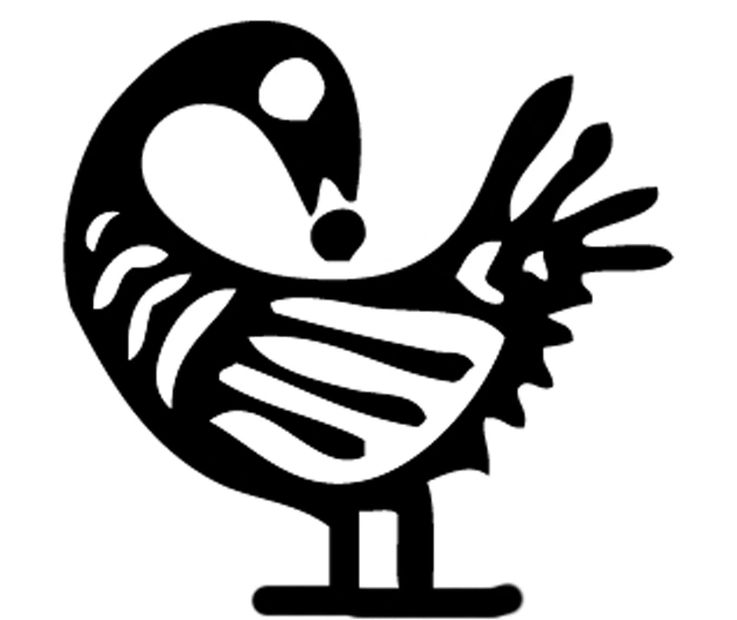

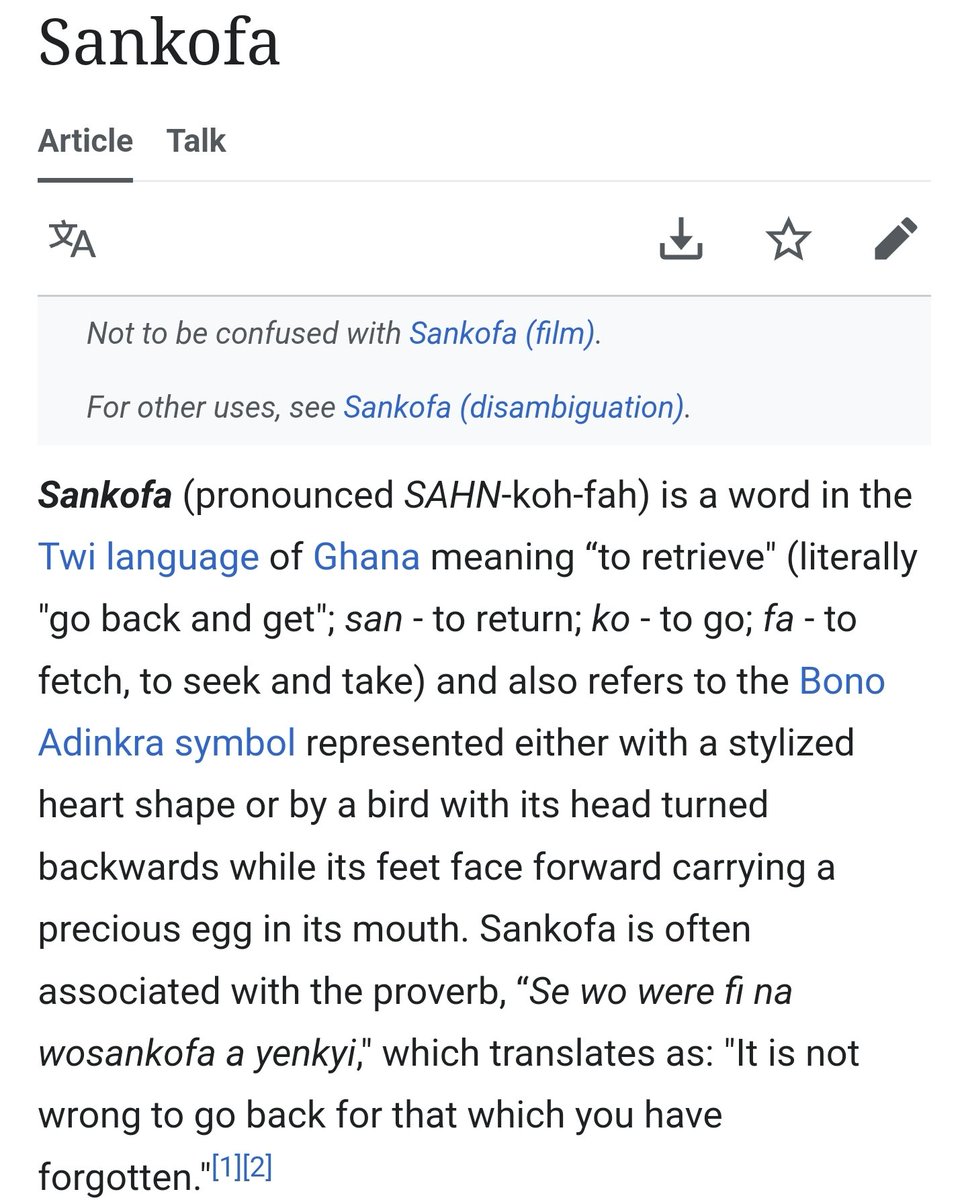
———
Verse 1
You got a penny for my thoughts? Let me double the fee
The cd is for a price, but the wisdom is free
Spiritually I’m in tune to the memory of those dead and gone
Feeling like biggie smalls, y’all dead wrong
For twisting up my history
Like blunts and trees
Verse 1
You got a penny for my thoughts? Let me double the fee
The cd is for a price, but the wisdom is free
Spiritually I’m in tune to the memory of those dead and gone
Feeling like biggie smalls, y’all dead wrong
For twisting up my history
Like blunts and trees
Like public enemy, elvis ain’t meant shit to me
I don’t care if u agree,
I’m just speaking my piece
———
The verse opens with the price of knowledge—If you've got a penny for my thoughts then let me double the fee.
I don’t care if u agree,
I’m just speaking my piece
———
The verse opens with the price of knowledge—If you've got a penny for my thoughts then let me double the fee.
However, "A penny for your thought" is an idiomatic expression that means "what's on your mind?" With this we know the rapper/persona is going to tell us what's on his mind. You may pay for the CD—the business side—but the wisdom he's spewing is free. 



He reinterprets "Sankofa" as being in tune with the memories of those dead & gone. That's he's revisiting the dead & bringing back their memories. One of those he's in tune with now, is Biggie Smalls (the Notorious BIG).
BIG has a song titled "Dead Wrong", which featured Eminem & was posthumously released in 1999. However, the rapper is saying that those who have twisted up his history are dead wrong. 
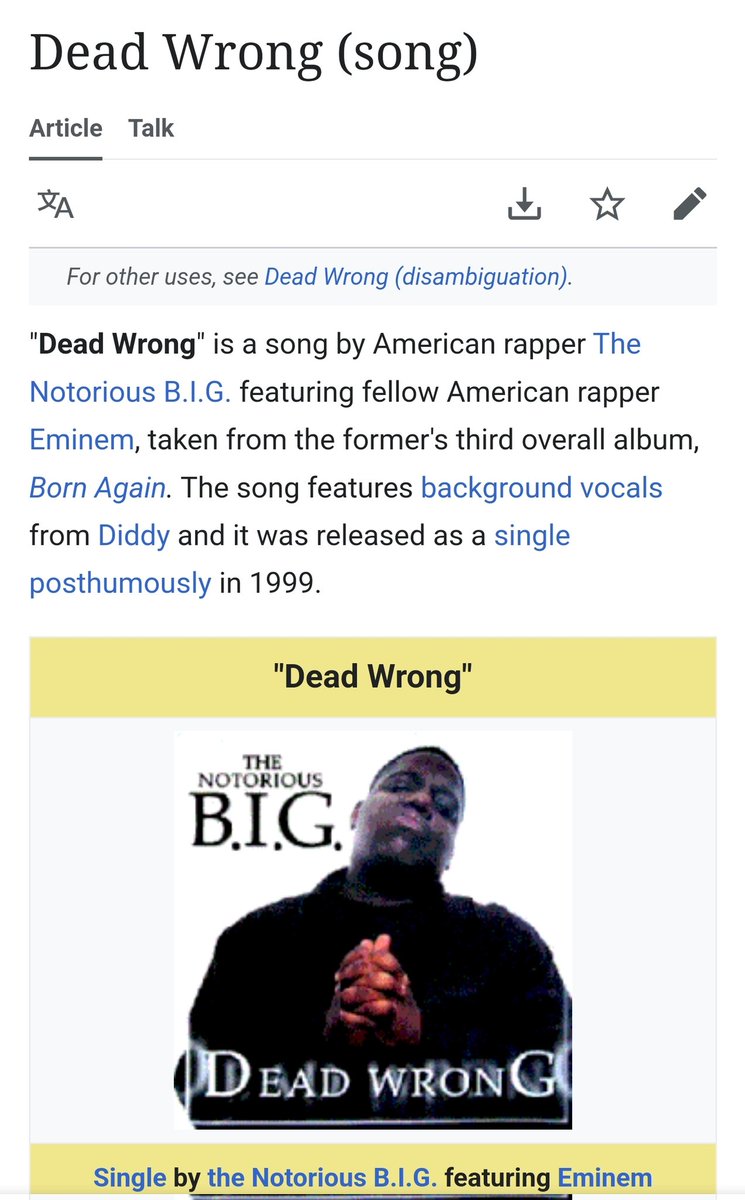
They've twisted his history like blunts & trees—some trees are very twisted & blunts (or "weed") has to be rolled & twisted before smoking. Also, both trees & blunts refer to "weed". To smoke trees is to smoke "weed. But here the reference is the "twisting".
In the song Fight the Power, Public Enemy—one of the earliest Hip-Hop Group made up of Flavor Flav & Chuck D— said of Elvis Presley (see picture) 





And it is these lines that the rapper is alluding to. That, just like Public Enemy, Elvis (Presley) means nothing to him; he's not one of those bamboozled by his fame & he doesn't care if you agree with him or not, he'll speak his mind/opinion—his piece.
cheatsheet.com/entertainment/…
cheatsheet.com/entertainment/…
———
Yall know u did niggas dirty like the bottom of cleats
And its bogus,
Columbus ain’t no real discoverer
And slaves were captured like images on cameras
———
Yall know u did niggas dirty like the bottom of cleats
And its bogus,
Columbus ain’t no real discoverer
And slaves were captured like images on cameras
———
The rapper is addressing a group of people who have twisted the history of blacks & have treated them like the bottoms of football boots (cleats). He then attacks their history—that Christopher Columbus didn't discover America as they claim he did.
It's abundantly clear that the Red Indians were on the land at the time of his arrival. Also, they captured slaves like images on cameras—in a flash, people found themselves captured & sold as slaves in far off countries. The persona/speaker is uncovering their true history.
———
I’m an analyst, a journalist, a modern day Copernicus
My moms gave me a solid foundation like make a wish
I feel like fish
Need a water cleanse, rinse
Let the waves rid me off my sins
———
I’m an analyst, a journalist, a modern day Copernicus
My moms gave me a solid foundation like make a wish
I feel like fish
Need a water cleanse, rinse
Let the waves rid me off my sins
———
Nicolaus Copernicus was a Polish mathematician & astronomer. He was a polymath & Polyglot who also proposed a heliocentric universe that placed the sun at the centre of our universe against the geocentric proposition of the church at the time. 

After listing his list—an analyst & a journalist, he compared himself to Copernicus. As an Astronomer, Copernicus was an observer, who analysed celestial bodies & recorded them—hence, he was similar to an analyst (observer) & a journalist (recorder & reporter is events).
In addition, the rapper acknowledges that one must observe things from different perspectives and challenge the status quo—just as Copernicus challenged the norm of the church's geocentric universe.
The rapper/speaker/persona in this piece says he was given a strong foundation, perhaps to think for himself, a good education, the freedom to ask questions & challenge norms, which emphasises his chosen moniker in this verse—"modern day Copernicus".
He compares the strength of his foundation, his upbringing, with the "Make a Wish Foundation", which is a foundation that makes the wishes of kids come true.
The rapper's reference to "moms" emphasises the "Sankofa" motif of this song. Moms are the source of life and in most societies are considered as the holder of the family unit, the unifiers, among others—in Twi we say "sɛ wo maame wu a na w'abusua asa"—
your family is no more when your mother dies. The rapper thus acknowledges the support & role of the mothers in his life, for what he's become—Sankofa, learning from the past to inform the future.
The rapper feels like a fish—in constant motion & evolution. He must grow & adapt to his environment in the midst of all the currents or rapids.
In the last two lines, the rapper uses the sea/water as a metaphor for cleansing, which in African societies could
In the last two lines, the rapper uses the sea/water as a metaphor for cleansing, which in African societies could
also mean the cleansing of souls from curses & sins.
Water & waterbodies have many spiritual connotations & uses in African societies. The rapper is calling for the cleansing of his sins so he can move forward.
Water & waterbodies have many spiritual connotations & uses in African societies. The rapper is calling for the cleansing of his sins so he can move forward.
———
Taking u back, rap like Hitchcock with the slow
It’s still bigger than Hip-Hop u know
Mr slow flow, here’s the evidence
Dilated, unearth history and celebrate it
Sankofa means I’m going back to reclaim it
Climbing over hills where Lauryn was miseducated
———
Taking u back, rap like Hitchcock with the slow
It’s still bigger than Hip-Hop u know
Mr slow flow, here’s the evidence
Dilated, unearth history and celebrate it
Sankofa means I’m going back to reclaim it
Climbing over hills where Lauryn was miseducated
———
Taking you back again references the Sankofa motif—go back & take. Alfred Hitchcock is known for his use of suspense & slow pacing in his movies. The persona/speaker is suggesting that they are taking the listeners on a slow, deliberate, journey that focuses on building the 

suspense & tension to a crescendo. In so doing, the lyrics &, hence, the message become the most important elements. 



The Sankofa ideology & message is bigger than, & transcends, the rap genre—Hip-Hop. The reference to the slow build up of tension is juxtaposed with the rapper's rap style—a slow enunciation of the bars, i.e., a deliberate slow flow meant to draw the listeners attention to
the lyrics and get them ensconced in the story/message & move with the tension.
Mdot is calling for an expansion in the search for evidence, dig into history, search occluded places, look into unusual records—
Mdot is calling for an expansion in the search for evidence, dig into history, search occluded places, look into unusual records—
because our history has been twisted & we need extraordinary measures to come up with the evidence to tell & celebrate our story. Dilate—or expand—is usually used for the eyes.
This brings the focus (pun intended) on our ability to see farther, search wider, and look beyond the current horizon. We mustn't just leave what we will find in books. We must celebrate them. Let's dig into the past for our exploits, and celebrate them.
The rapper summarises all these actions with "Sankofa means I’m going back to reclaim it". But none of these will come easy. There will be obstacles that must be overcome—there will be hills that must be scaled, rivers to ford. Mdot compared the obstacles to the hills on which
Lauryn Hill was miseducated.
In that song—The Miseducation of Lauryn Hill—the musician spoke about the effects of her environment on her growth & how anytime she wants to be what they want her to be, she feels stifled & so she must define her own destiny. She asks
In that song—The Miseducation of Lauryn Hill—the musician spoke about the effects of her environment on her growth & how anytime she wants to be what they want her to be, she feels stifled & so she must define her own destiny. She asks
"I look at my environment
And wonder where the fire went
What happened to everything we used to be"
The answer to this is searching what we used to be, learning from it, & celebrating it.

And wonder where the fire went
What happened to everything we used to be"
The answer to this is searching what we used to be, learning from it, & celebrating it.

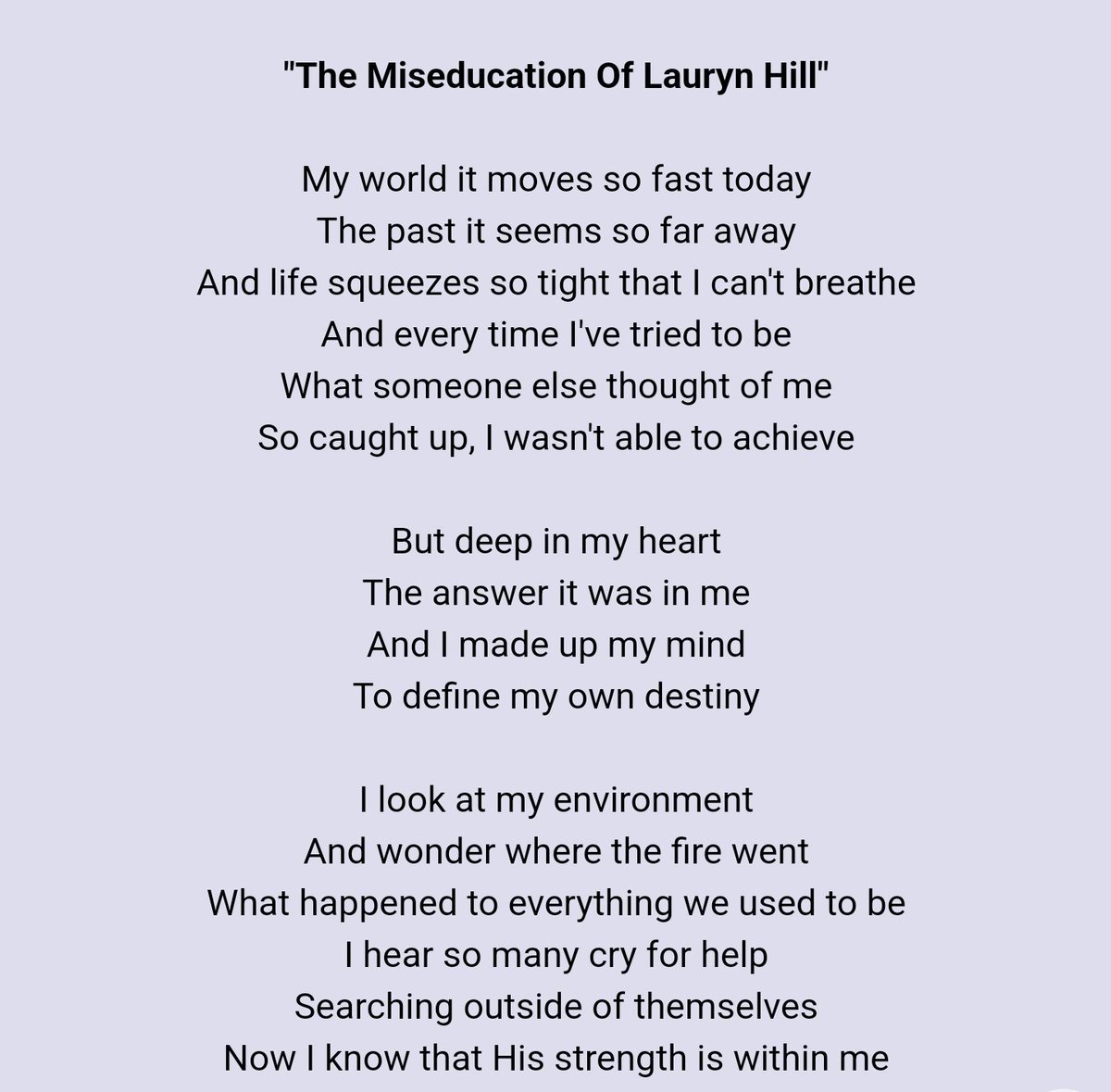
The call is therefore to rise above the current status quo, define our destiny and get to zion.
I cannot but also relate this line to Buju Banton's Hills and Valleys, with lines like [See attached picture]
I cannot but also relate this line to Buju Banton's Hills and Valleys, with lines like [See attached picture]

———
Hook
My history, your history, our history
So tragically, has been erased
Don’t be afraid
Sankofa, back to our ways x2
———
Hook
My history, your history, our history
So tragically, has been erased
Don’t be afraid
Sankofa, back to our ways x2
———
The hook emphasises that the loss of his history, our history, did not occur by chance but through a deliberate effort. And as much as this is tragic, we shouldn't be afraid to go back to our ways.
———
Verse 2
If u don’t know where you’re from,
Now tell me where are you going?
m.anifest is fresh and fly like a Boeing
757, way back in ’97, way before 9-11
I had no way of telling I would be
The mc I came to be
———
Verse 2
If u don’t know where you’re from,
Now tell me where are you going?
m.anifest is fresh and fly like a Boeing
757, way back in ’97, way before 9-11
I had no way of telling I would be
The mc I came to be
———
The axiom that if you don't know where you're from, you won't know where you're going expresses the need for one to know his compass, his position, in life. All references to the self are related to one's roots.
For instance, the simple question of "who are you", will begin with your name, which connects you to a family, an ethnic group, a part of God's earth. We proceed, in answering such questions by enumerating our ancestors of whom we are proud.
For most of us, this inspires us to do greater exploits or stay away from certain behaviours or activities that will bring our family name to disrepute—in Twi, we say "Animguase mfata ɔkanni" —the Akan (person) doesn't deserve disgrace;
hence, as an Akan, act in ways that do not bring disgrace to you &, consequently, your family.
Thus, knowledge of our past, of who we are, of where we've come from, serve as guidance on where we are going or can go.
Thus, knowledge of our past, of who we are, of where we've come from, serve as guidance on where we are going or can go.
The rapper is therefore asking those who have no knowledge of where they come from to tell him where they think they're going? A tree without roots is easily thrown by the winds.
M.anifest likened himself to the new Boeing 757 that took him from his home country to a far away place, in 1997, before the Boeing 767 struck the World Trade Center. The swagger & thy freshness. At that time, he had no knowledge that he'll become the MC/rapper he's become now.
The expected outcome of the journey might've been to have taken on one of these hifalutin jobs we slobber over—lawyer, doctor etc But it turned out differently but given that the his grandfather was an ethnomusicologist, this isn't a surprise as it leads back to his roots—Sankofa
———
Discovered myself when I found my history
Buried underneath the corners of libraries
I learn my ABC’s before I throw some D’s…
On em
And if they had a way
They’ll prolly never tell us who paved the way
———
Discovered myself when I found my history
Buried underneath the corners of libraries
I learn my ABC’s before I throw some D’s…
On em
And if they had a way
They’ll prolly never tell us who paved the way
———
The rapper says he discovered himself, he found his roots, he found what he could be when he found his history, buried underneath the corners of libraries. If something is in a corner, it means it's not considered important, add to that, it's been buried under piles of stuff.
This means that effort is required to unearth our histories. These are not things we will be taught in class. One must set for himself, the quest to uncover his roots & their related histories.
The rapper began studying his history from the beginning. Started with the basics and moved to the difficult ones. He learnt the lyrics of ABC (by the Jackson 5) before "Throw Some Ds", which is a rap song by Rich Boy (2006). 



In the last two lines, the rapper says that if the people he's addressing had their own way they'll deny the very things they used slave labour to do—road & building constructions, farming, etc. They will be discredited with the roads they paved.
"Pave" here could also refer to civilisation. It's been argued that civilisation began in regions located in Africa—the Nile Valley civilisation, Kemet, Nubia... Information like this, which goes against western narrative about blacks, are not sourced from history textbooks—
their source materials are hidden in corners of libraries underneath piles of records.
———
I must say, I feel like Biko
A young Nelson Mandela with the ANC
I’m for my people
And I’m so cerebral, and so so regal
In my batakari, yes! Pass me the gari
If Fernando Po brought us cocoa
And if Yaa Asantewa was a warrior
Why hide it? Ohooo
———
I must say, I feel like Biko
A young Nelson Mandela with the ANC
I’m for my people
And I’m so cerebral, and so so regal
In my batakari, yes! Pass me the gari
If Fernando Po brought us cocoa
And if Yaa Asantewa was a warrior
Why hide it? Ohooo
———
The rapper supports & advocates for his people like Biko & Mandela.
Steve Biko was an anti-apartheidist who was murdered by the apartheid government of South Africa because of his stance & his ideological influence on the people. His most famous book is "I Write what I Like".
Steve Biko was an anti-apartheidist who was murdered by the apartheid government of South Africa because of his stance & his ideological influence on the people. His most famous book is "I Write what I Like".
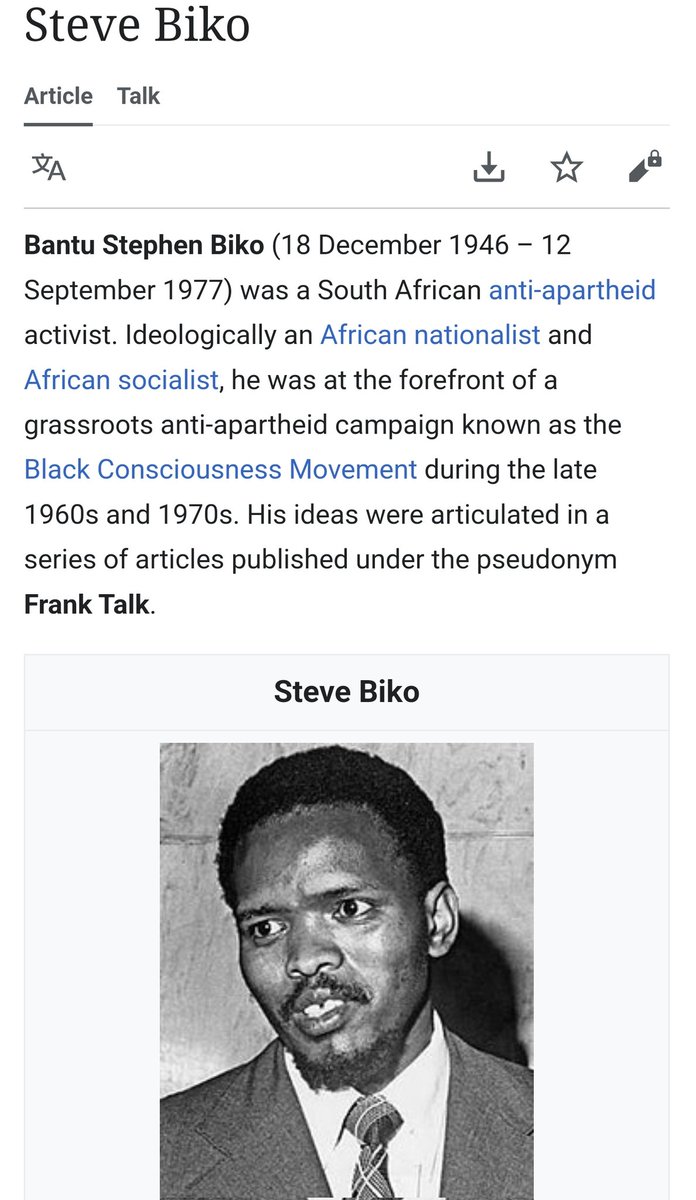
Biko receives much love from South Africans today. He was quick to realise that passivity & pacifism will not lead to the dismantling of apartheid. His firebrand attitude & attention to addressing the way of thinking of his people unsettled the govt, which led to his murder.
Biko led the Black Concious Movement, which ideologically challenged the church & the state & asked black pastors to indegenise God & preach to the people within the context of their struggles & not within contexts that perpetuate the perpetuate slavery & that master-slave
relationship between black & whites in the country—South Africa.
Mandela is, at least, one of the most famous Africans, becoming the first president of post-apartheid South Africa, after spending 27 years in Robben Island.
Mandela is, at least, one of the most famous Africans, becoming the first president of post-apartheid South Africa, after spending 27 years in Robben Island.
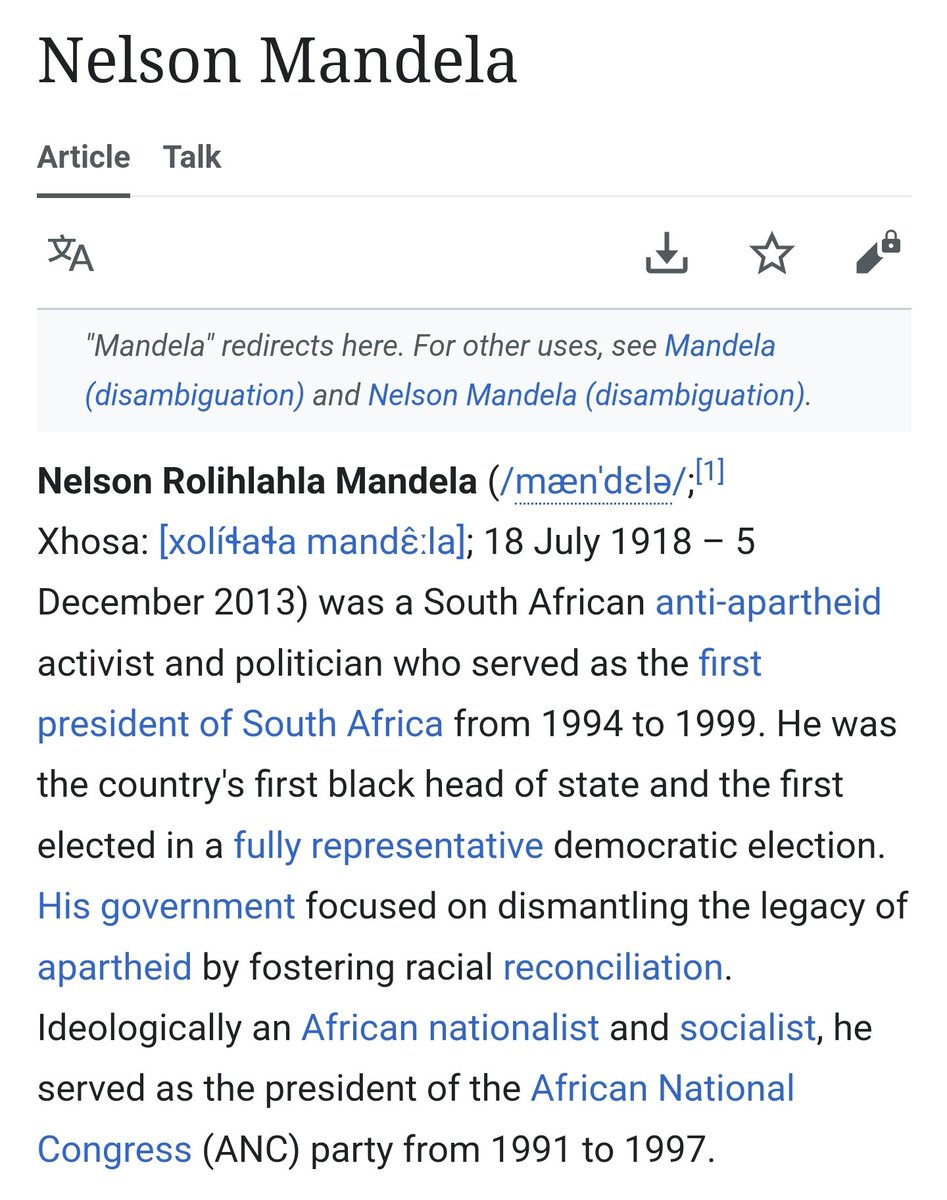
The rapper isn't just about talk. He's intelligent, an intellectual—cerebral—& royal, magnificent, splendid—regal in his batakari. Batakari, or smock, is a dress native to northern Ghana & also worn by many chiefs even in the south on important occasions.
Why should our history be hidden from us? Why should the history of Yaa Asantewa—a queen mother of Ejisu who led his people to war against the British—be hidden or that we got our cocoa from Fernando Po, courtesy Tetteh Quarshie? Oh ho! Is a sound made to indicate displeasure. 

———
Verse 3
From the kingdoms of Western Sudan, Mali and Songhai
Nubian Lands where black kings made empires
More fire to kemet or kush
Cheikh Anta Diop penned the truth in his books
———
Verse 3
From the kingdoms of Western Sudan, Mali and Songhai
Nubian Lands where black kings made empires
More fire to kemet or kush
Cheikh Anta Diop penned the truth in his books
———
In these lines he rapper is concluding with evidence of what he's unearthed from the libraries. He mentions some of the empires that existed, flourished, traded, and did exploits. Black Kings such as Mansa Musa & others who embarked on exploration.
oxfordbibliographies.com/display/docume…
oxfordbibliographies.com/display/docume…
Western Sudan birthed three great empires—Ghana (nothing to do with us in terms of location, except in borrowed name) (c. 8th-11th century), Mali (c. 13th-16th century), and Songhai (c. 15th-17th century).
metmuseum.org/toah/hd/wsem/h…
metmuseum.org/toah/hd/wsem/h…
Kemet is the name of ancient Egypt or the location the modern day Egypt is located. And Kush is one of the empires that flourished along the Nile Valley. 





Cheikh Anta Diop, the Senegalese scholar, has written extensively about these matters. The rapper is telling/showing us where to seek the truth. 



———
Sankofa; we remember the good with the bad
The bogas, the kubolors, oga this is not a fad
Sankofa; I said we reclaiming the past
Sankofa ay ay ay
——–
Sankofa; we remember the good with the bad
The bogas, the kubolors, oga this is not a fad
Sankofa; I said we reclaiming the past
Sankofa ay ay ay
——–
Sankofa isn't blind or wholesale romanticisation of the past. Sankofa acknowledges the good & the bad, as they exist in all spheres of human interactions & in all epochs.
Thus in our remembrance, we remember both the good & bad, to know what to leave & what to pick—it's like going for mushroom picking. If you don't know what to look for, you'll pick poisonous mushrooms.
He admonished the leaders (the Ogas) that this isn't something that comes with exaggerated zeal & fades with time—fad. It's something that must be pursued everyday, all day, forever. He emphasises the quest to reclaim the past.
———
Sankofa one time, Bamako to Naija
Heroes, Angelique Kidjo, Kofi Ghanaba
Sankofa; ougadougou to Jo’burg
Where linguistics drop proverbs, say word
Sankofa; Word once a again
Sankofa one time, Bamako to Naija
Heroes, Angelique Kidjo, Kofi Ghanaba
Sankofa; ougadougou to Jo’burg
Where linguistics drop proverbs, say word
Sankofa; Word once a again
Street level oratory transcribed with a pen
Hands in the air you can lick a shot
Sincerely yours m diggy diggy dot
———
These lines use Sankofa as a metaphor for reconnecting with African history and culture and countries.
Hands in the air you can lick a shot
Sincerely yours m diggy diggy dot
———
These lines use Sankofa as a metaphor for reconnecting with African history and culture and countries.
The rapper references various African cities, highlighting the diversity and richness of the continent & that Sankofa is not limited to a single place or time, but is instead a universal concept that transcends borders.
The speaker brings the story to the present—from Bamako (Mali) to Naija (the moniker for Nigeria), we are seeking our heroes, the likes of Angélique Kidjo (Benin) & Kofi Ghanaba (aka Guy Warren, Ghana).
Ghanaba is the inventor of Afro-Jazz. He's inspired many musicians including Fela Kuti. He reinterpreted Handel's Hallelujah Chorus on his fontomfrom drums. Ghanaba is, possibly, the greatest drummer this country has ever known. His influences stretches beyond the continent. 




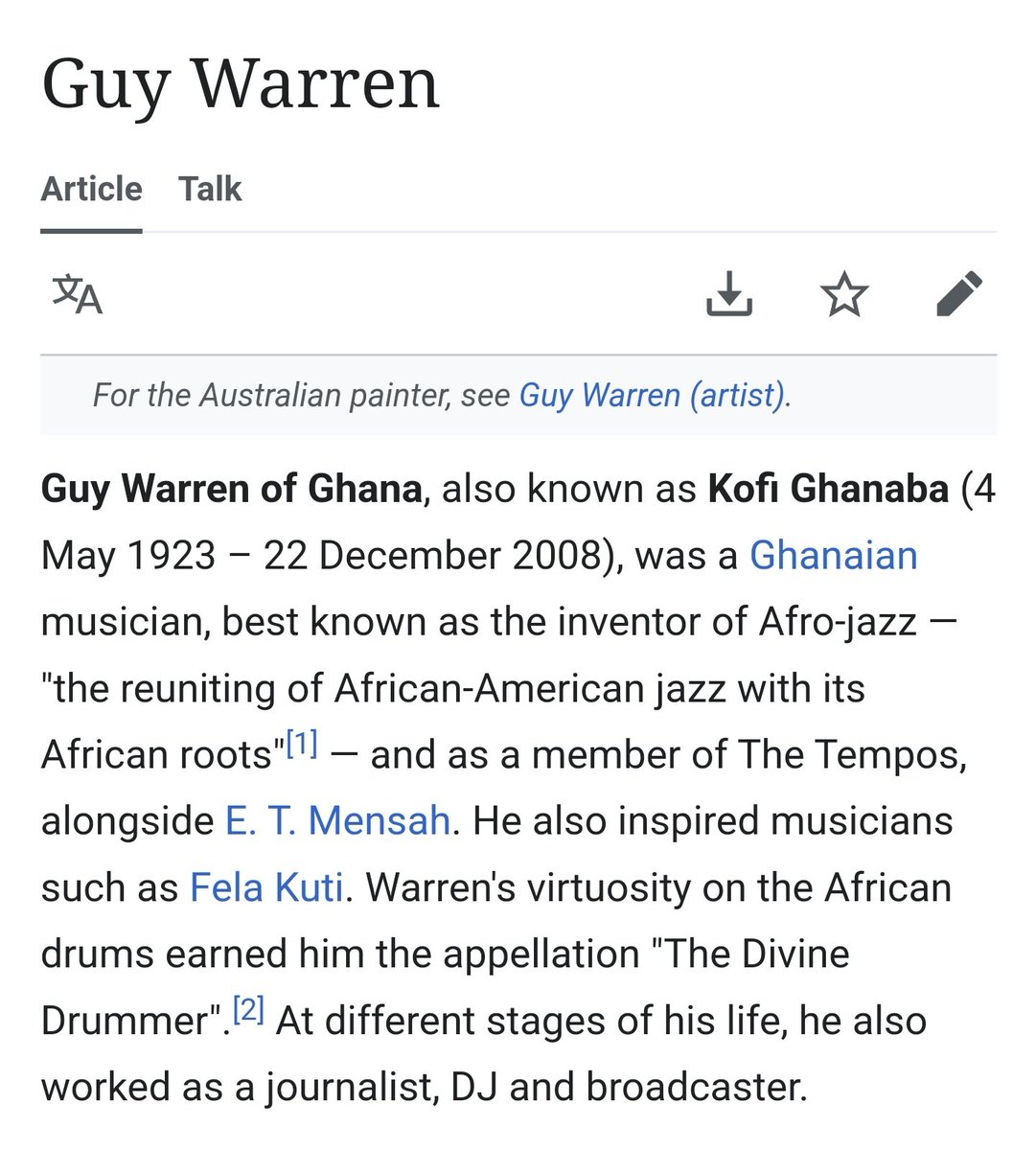


Angélique Kidjo is a musician who sings in many languages including her fon language & her own language. Kidjo is inseparable from her Benin roots—culture & religion. 





These musicians, used as symbols of culture & heritage, are in tune with their roots & never swayed from them even as they travelled far & wide & performed on international stages. They interpret modernity in traditional songs &bring the past into the present in beautiful verses.
From Ouagadougou (Burkina Faso to J'oburg (or Johannesburg, South Africa), Africans speak in proverbs. In these lines, Mdot is presenting how our oratory skills can easily be transcribed onto the paper—sankofa.
The reliance on oratory has built a lot of wisdom into our languages which can be capitalised on and shared with a larger audience on a global scale.
The phrase "say word" is a hip hop slang, suggesting that this wisdom is relevant and important to contemporary culture. Mdot is seeking agreement from the listeners.
(As an aside, I cannot but think that the mention of J'oburg implies a reference to the SA rapper Proverb.)
(As an aside, I cannot but think that the mention of J'oburg implies a reference to the SA rapper Proverb.)
The final lines, "Hands in the air you can lick a shot / Sincerely yours m diggy diggy dot" are a call to action, suggesting that the listener should take up the cause of Sankofa and work to preserve African culture.
The use of slang ("lick a shot") suggests that this call to action is urgent and important, and that there is no time to waste. 

@threadreaderapp unroll
• • •
Missing some Tweet in this thread? You can try to
force a refresh



